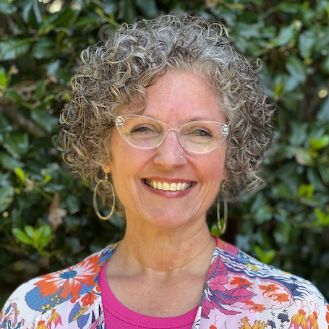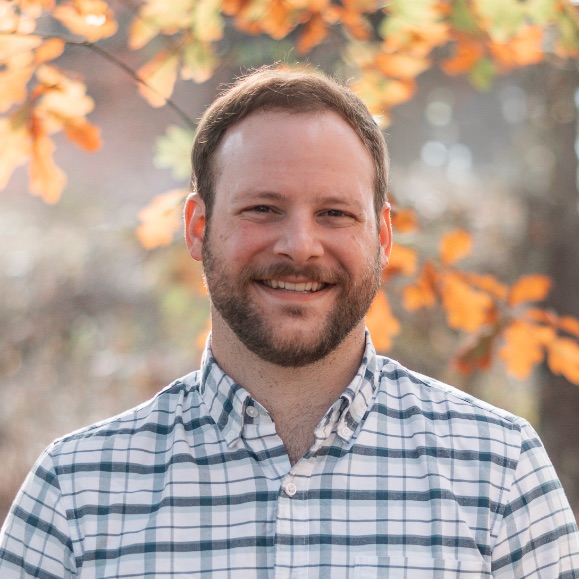A Step-by-Step Guide to OCD Therapy in Raleigh
Starting OCD therapy in Raleigh often begins by recognizing persistent obsessions and compulsions that interfere with daily life and deciding it’s time for support. Next, research local providers who specialize in OCD, especially those trained in CBT and Exposure and Response Prevention (ERP); MiResource’s directory makes it easy to filter for qualified therapists in neighborhoods like Downtown, Five Points, North Hills, and the Village District. Many clinicians offer both in-person sessions and secure virtual visits, which can help if you’re balancing work near RTP or living in Brier Creek or Southeast Raleigh. Reading bios, checking insurance, and shortlisting a few therapists helps you feel prepared to schedule an initial consultation.
When you book that first appointment, ask about availability, fees, and whether they provide ERP; expect your initial session to include a thorough assessment and goal-setting. For in-person visits, plan ahead for parking—Downtown garages near Moore Square and Fayetteville Street are plentiful, and North Hills and the Village District have convenient free parking—while GoRaleigh bus routes along Hillsborough Street and to GoRaleigh Station can simplify transit. In the first few weeks, your therapist will typically outline a structured ERP plan, home practice, and check-ins to measure progress. Following through with scheduled sessions and between-session exercises, whether in-office or via telehealth, helps you build confidence and see steady improvement.
Guide to Accessing Local Organizations for OCD Support in Raleigh
Local organizations in Raleigh can make navigating OCD care easier by offering support groups, education, and connections to clinicians who understand evidence-based treatments. Advocacy groups like OCD North Carolina (an International OCD Foundation affiliate) and NAMI Wake County provide peer support and practical guidance. County and regional partners such as Wake County Human Services and Alliance Health help residents find appropriate services and understand eligibility. Using reputable directories like the International OCD Foundation and NC 211 can streamline your search and connect you to nearby Triangle resources when needed.
- Identify organizations:
- Search the International OCD Foundation directory for North Carolina resources and the OCD North Carolina affiliate
- Check NAMI resources and local affiliates (e.g., NAMI Wake County via NAMI North Carolina)
- Review Wake County Behavioral Health services and Alliance Health (serves Wake County)
- Use NC 211 to find community programs and support groups
- Contact:
- Visit each site to find meeting calendars, referral forms, or contact pages; send a brief message describing your OCD-related needs and location in Raleigh.
- Prepare:
- List symptoms, goals, availability, insurance/coverage, and any preferences (in-person vs. virtual) before calls or emails.
- Engage:
- Attend an initial support group or info session, ask about care navigation and peer support options, and request referrals to OCD-informed therapists or programs in the Raleigh/Triangle area.
Guide to Using Emergency Services for OCD in Raleigh
Use emergency services for OCD when intrusive thoughts or compulsions lead to imminent risk—such as plans or intent to harm yourself or others—when you can’t care for basic needs, or when panic, agitation, or psychotic-like symptoms feel unmanageable. If you’re unsure but feel unsafe, err on the side of calling for help. Emergency teams can keep you safe, reduce acute distress, and connect you to follow-up OCD care in Raleigh.
Step 1: Identify a crisis. Seek emergency help if you have suicidal thoughts with intent/plan, thoughts of harming others, can’t stop compulsions enough to stay safe, can’t care for yourself (e.g., eating, hydration, medications), or feel out of control with severe anxiety or confusion.
Step 2: Call for immediate support. Dial or text 988 for 24/7 suicide and crisis support. For local coordination in Raleigh/Wake County, call Alliance Health’s 24/7 Access and Crisis Line at 800-510-9132 (TTY 711). You can also contact NC Mobile Crisis 24/7 at 1-855-587-3463 for on-site evaluation and support.
Step 3: Go to a local crisis or emergency center if risk is high or you need in-person care now. WakeBrook Crisis and Assessment Services (24/7 walk-in), 107 Sunnybrook Rd, Raleigh, NC 27610. Emergency Departments: WakeMed Raleigh Campus ED, 3000 New Bern Ave, Raleigh, NC 27610, 919-350-8000; Duke Raleigh Hospital ED, 3400 Wake Forest Rd, Raleigh, NC 27609, 919-954-3000; UNC Rex Hospital ED, 4420 Lake Boone Trail, Raleigh, NC 27607, 919-784-3100. If danger is immediate, call 911 and state it’s a mental health crisis.
Step 4: Know what to expect. Providers will assess safety, stabilize symptoms, and create a plan for follow-up OCD care. You may be observed briefly or admitted if needed. Bring ID, insurance (if you have it), a medication list, and emergency contacts; you can go even without these. You’re not alone—help in Raleigh is available 24/7.
Guide to Using Parks and Green Spaces in Raleigh to Support Mental Health
Spending time in nature can reduce stress, quiet racing thoughts, and support mood stability, which is especially helpful for people managing OCD. Gentle movement and natural scenery can lower anxiety and make exposure and response prevention skills easier to practice. Parks also offer structured routines—like walking loops—that can build confidence and consistency. In Raleigh, green spaces provide accessible ways to recharge while staying connected to community.
1) Find your spot
- Explore Dorothea Dix Park’s open fields, Pullen Park’s lakeside paths, the Neuse River Greenway Trail, William B. Umstead State Park’s wooded trails, Lake Johnson Park’s loop, Shelley Lake Park’s greenway, and Durant Nature Preserve.
- Use the City of Raleigh Parks website or apps like AllTrails to check trail lengths, surfaces, accessibility, parking, and restroom locations.
2) Prepare with care
- Pick times with comfortable crowds (early morning or late afternoon) and plan a simple route.
- Bring water, sun protection, comfortable shoes, and a small grounding tool (e.g., a smooth stone, fidget, or journal).
- Set a clear, kind intention for OCD support (e.g., “I’ll walk 15 minutes and practice noticing urges without engaging in compulsions”).
3) Make the most of your visit
- Start with short, repeatable loops at Lake Johnson or Shelley Lake; add time as it feels manageable.
- Use mindful cues: 5-4-3-2-1 senses, paced breathing by steps, or naming trees, birds, and water sounds.
- When OCD urges arise, gently label them, refocus on your breath or scenery, and continue your activity.
4) Build a sustaining routine
- Schedule regular outings (e.g., twice weekly at Umstead or the Neuse River Greenway) and track mood before/after.
- Vary locations to keep it fresh—open vistas at Dorothea Dix Park, shade at Durant, play spaces at Pullen Park.
- Consider Raleigh Parks programs or volunteer cleanups to add social connection and accountability.
Your Guide to Understanding OCD
OCD, or obsessive-compulsive disorder, is a mental health condition where unwanted thoughts, images, or urges (obsessions) create anxiety, and repetitive actions or mental rituals (compulsions) are used to feel safer or in control. These patterns can be time-consuming and distressing, even when someone knows they don’t fully make sense. OCD can show up in many ways—like checking, cleaning, seeking reassurance, or needing things to feel “just right.” It affects people of all ages and backgrounds, and it’s not a personality quirk or simply being neat.
Understanding OCD matters because early recognition can reduce shame and help people get effective support. Evidence-based treatments, like exposure and response prevention (a structured therapy that gently helps you face fears without rituals), can make a real difference. Learning how OCD works also helps loved ones respond with compassion instead of accidentally reinforcing the cycle. With the right tools and care, people with OCD can reclaim time, energy, and peace of mind.
What OCD Is and How It’s Defined
Obsessive-compulsive disorder (OCD) is a mental health condition where people experience unwanted, persistent thoughts (obsessions) and feel driven to repeat behaviors (compulsions) to ease anxiety. Organizations like the American Psychiatric Association and the National Institute of Mental Health define OCD as a pattern of intrusive worries and repetitive actions that significantly interfere with daily life. Examples include excessive checking, cleaning, or seeking reassurance, even when someone knows the fears may not be realistic. OCD is common and treatable, and recognizing these patterns is a compassionate first step toward getting help.
Who OCD Can Affect
OCD can affect people of all ages, genders, and backgrounds, and it’s more common than many realize. While symptoms often first appear in childhood, the teen years, or young adulthood, anyone can experience OCD; factors like family history, high stress, or perinatal changes may increase risk for some. It can look like needing to recheck the stove, arranging items “just right,” or getting stuck on intrusive worries about safety or germs. Whatever your experience, you’re not alone, and support is available for everyone.
Why It’s Important to Learn About OCD
This section highlights common signs and symptoms of OCD so you can recognize potential concerns early and feel empowered to seek support. It’s meant to inform—not alarm—with simple, relatable examples you might notice in everyday life.
- Intrusive, unwanted thoughts that are hard to shake, even when you know they don’t make sense
- Repeating actions (like washing, checking locks, or re-reading) to feel safe or “just right”
- Spending a lot of time on rituals or mental routines that disrupt your day
- Avoiding places, people, or tasks that trigger fear (germs, harm, making a mistake)
- Strong need for order, symmetry, or perfection, with tension until things look or feel right
- Frequently asking for reassurance, but the relief fades quickly
- Feeling ashamed, anxious, or exhausted by these patterns and hiding them from others
What People Want to Know about OCD
- How do I know if I’m ready to start therapy for OCD?
You may be ready to start therapy for OCD if you notice obsessions or compulsions are affecting your daily routines, relationships, sleep, work, or school. Feeling frustrated with how much time OCD takes, or curious and motivated to try new coping strategies, are strong signs you’re ready. If you’ve been seeking answers, wanting tools to reduce anxiety, or hoping to regain control, therapy for OCD can help. Taking this first step is a brave choice, and support is available when you’re ready. - What should I look for when choosing a therapist who treats OCD in Raleigh?
Look for a Raleigh therapist with specific, proven experience treating OCD, ideally using ERP (exposure and response prevention) and CBT. Confirm credentials and training in OCD-focused methods, North Carolina licensure, and ongoing supervision or specialty memberships. Ask how they tailor ERP to your goals, measure progress, and coordinate care to fit your life. Choose someone you feel comfortable with—the right rapport, clear communication, and accessible scheduling can help you feel confident in your OCD care.
- What are evidence-based therapies to treat this OCD?
Common evidence-based treatments for OCD include Exposure and Response Prevention (ERP), Cognitive Behavioral Therapy (CBT), and medication such as SSRIs. ERP helps you gradually face feared situations while learning to resist compulsions, so anxiety fades over time. CBT teaches practical skills to spot and change unhelpful thought patterns that drive OCD. SSRIs can reduce OCD symptoms by balancing brain chemistry and are often used alone or together with therapy for the best results. - How long does therapy for OCD usually take?
Therapy duration for OCD varies based on severity, the type of treatment (such as ERP or CBT), your goals, and individual progress. Many people notice meaningful improvement over several weeks to a few months, though timelines can be shorter or longer and no specific outcome is guaranteed. Consistency with sessions and practicing skills between appointments are key to steady progress. In Raleigh, options range from weekly OCD-focused therapy to intensive ERP programs, allowing you to choose the pace and level of support that fit your needs.
- Can I combine therapy for OCD with medication?
Many people with OCD find that a combination of therapy—often ERP—and medication can provide stronger, more sustained relief than either approach alone. The best plan varies by person, so decisions should be made with a qualified professional who understands your symptoms and goals. In Raleigh, coordinated care between therapists and prescribers helps ensure treatments work together and are adjusted as needs change. It’s normal to need a tailored approach, and getting expert guidance can make the process feel clearer and more hopeful.
- How much does OCD therapy typically cost, and will insurance cover it?
OCD therapy costs vary based on location (Raleigh vs. surrounding areas), provider type (psychologist, counselor, psychiatrist), treatment modality (ERP, CBT), and session length or frequency. Insurance may cover part or all of care if the provider is in-network; ask your insurer about benefits for outpatient mental health, copays, deductibles, prior authorization, and out-of-network reimbursement, and confirm CPT codes (e.g., 90791 for intake, 90834/90837 for therapy) with the provider. If cost is a barrier, look for sliding-scale options, university training clinics like the NC State Psychology Clinic in Raleigh, community mental health centers, or nonprofit resources (e.g., NAMI Wake County) that can provide referrals. Tip: call both your insurer and the OCD therapist’s office to verify coverage and costs in writing before your first appointment. - What can I do between therapy sessions to help manage my OCD?
Between sessions, practice small, planned exposures from your hierarchy and focus on response prevention—delay or reduce compulsions and track wins in an OCD log. Use brief daily mindfulness or grounding exercises to notice urges without engaging them, and limit reassurance seeking by setting clear boundaries with yourself and others. Keep a steady routine with sleep, movement, and nourishing meals to lower overall stress, and schedule brief “worry windows” to contain rumination. If you’re in Raleigh, consider an OCD peer group or a gentle, mindful walk in a familiar Raleigh park to reinforce progress and support recovery.













